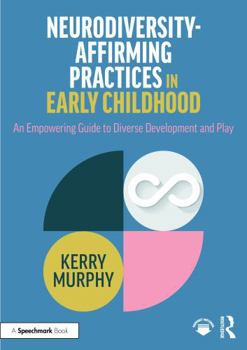Neurodiversity-Affirming Practices in Early Childhood: An Empowering Guide to Diverse Development and Play
It is not uncommon to hear the myth that young children develop in the same way, or that play does not come naturally to disabled or neurodivergent children. This essential guide challenges these myths and empowers early years educators to adopt neurodiversity-affirming practices which support all children, emphasising the joy, wonder and possibilities of inclusive practice.
The book explores diverse development and learning through a variety of different lenses, including early years provision, specialist support, and speech and language therapy. The reader is introduced to a range of theoretical perspectives, alongside practical examples, audits, case studies, and strategies which explore the environment and the features and benefits of self-directed play. Topics include:
An introduction to neurodiversity-informed practice Unpacking ableism and disablism in early childhood Approaching practice through a neurodiversity-informed lens Developing a curriculum that promotes equality and embraces diversity Advice for working effectively with parents and carers Creating inclusive learning environments that are accessible and enjoyable for all children.Neurodiversity-Affirming Practices in Early Childhood challenges outdated assumptions and expands our understanding of child development and play, with inclusive practice at its heart. This is a key read for anyone working with young children, enabling them to actively move towards neurodiversity-affirming practices.





